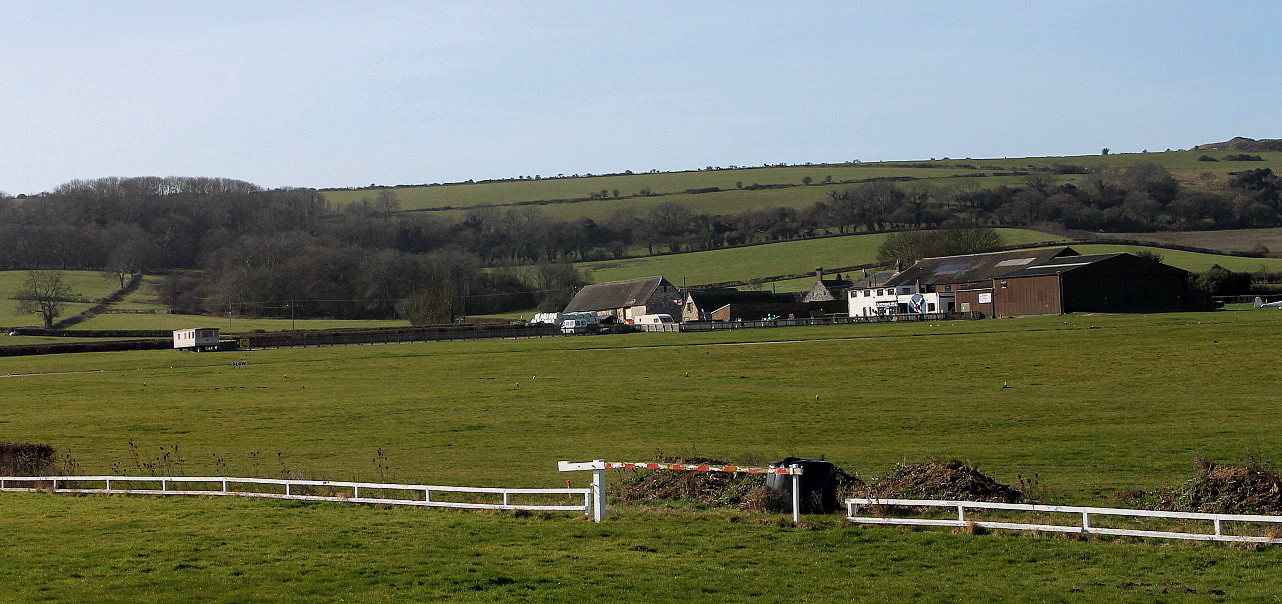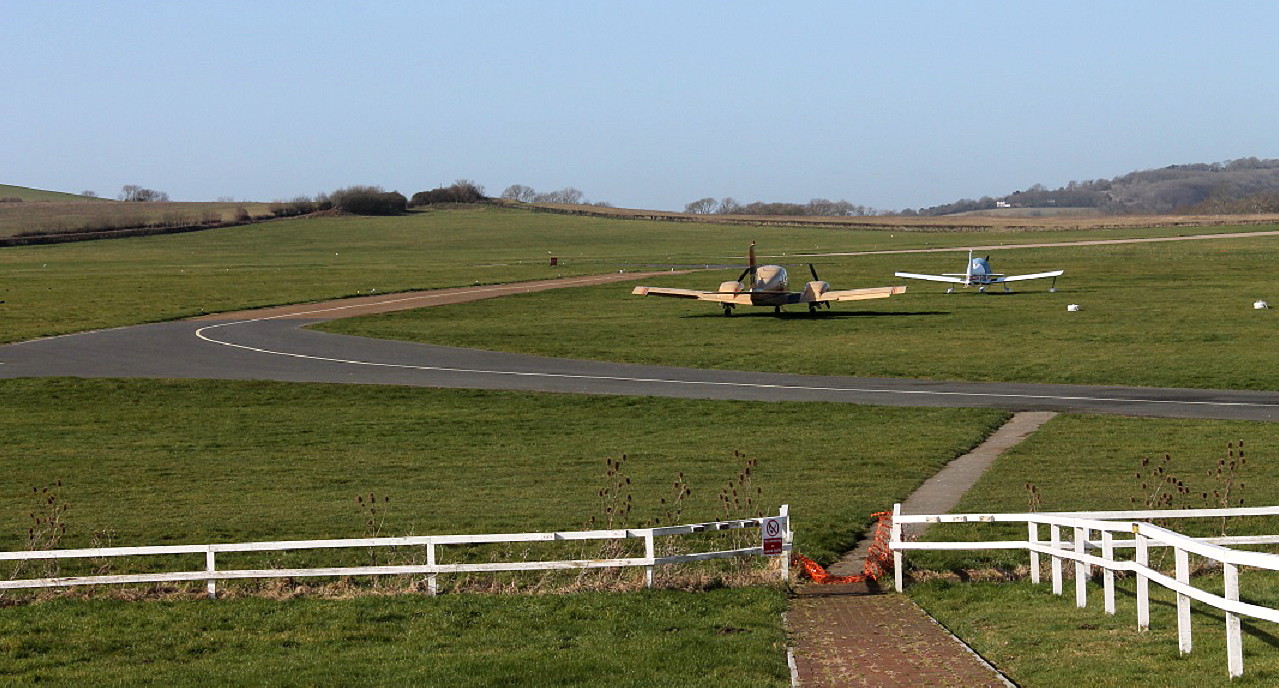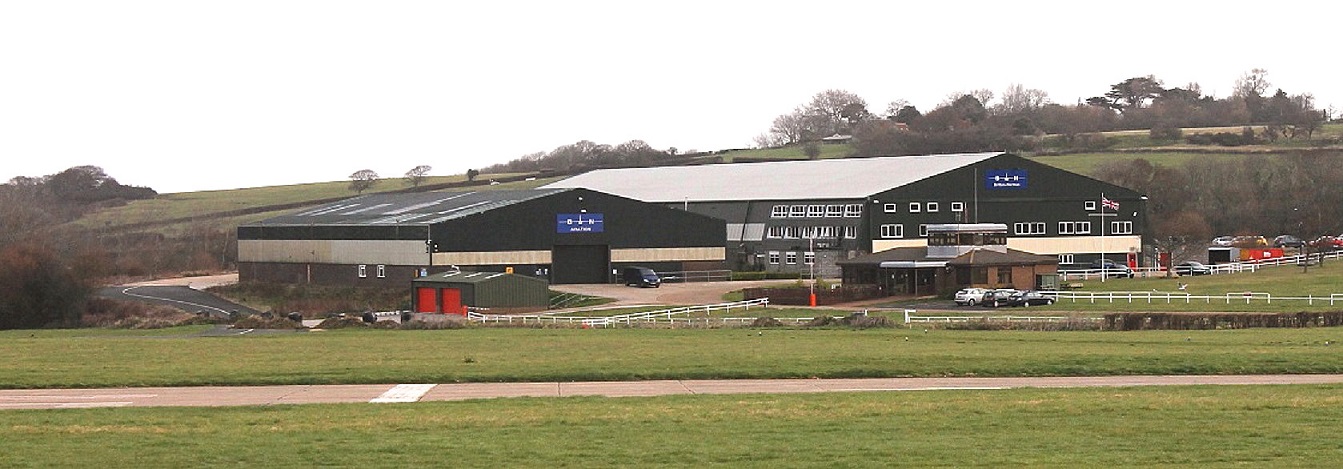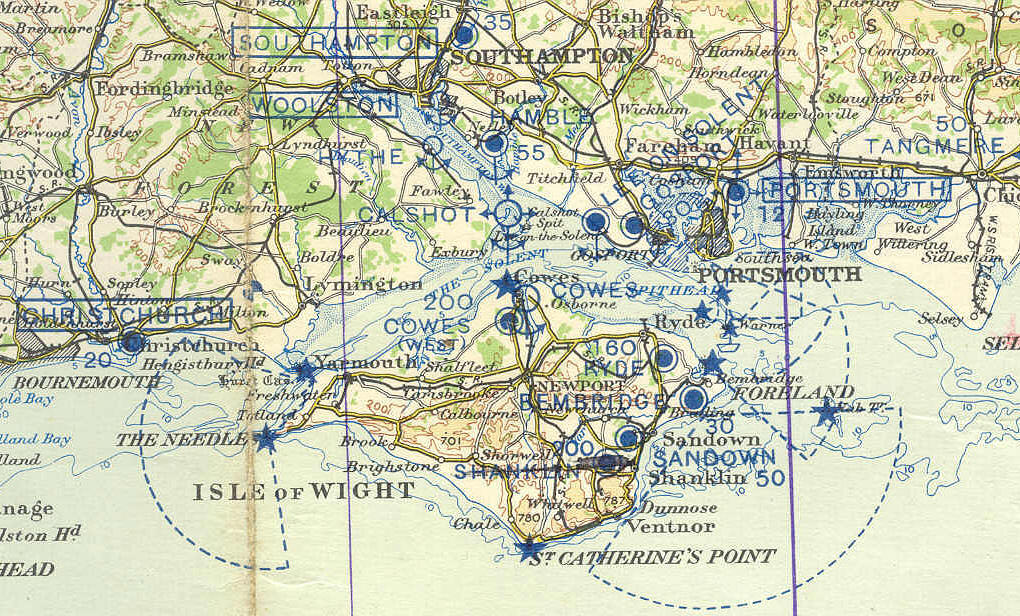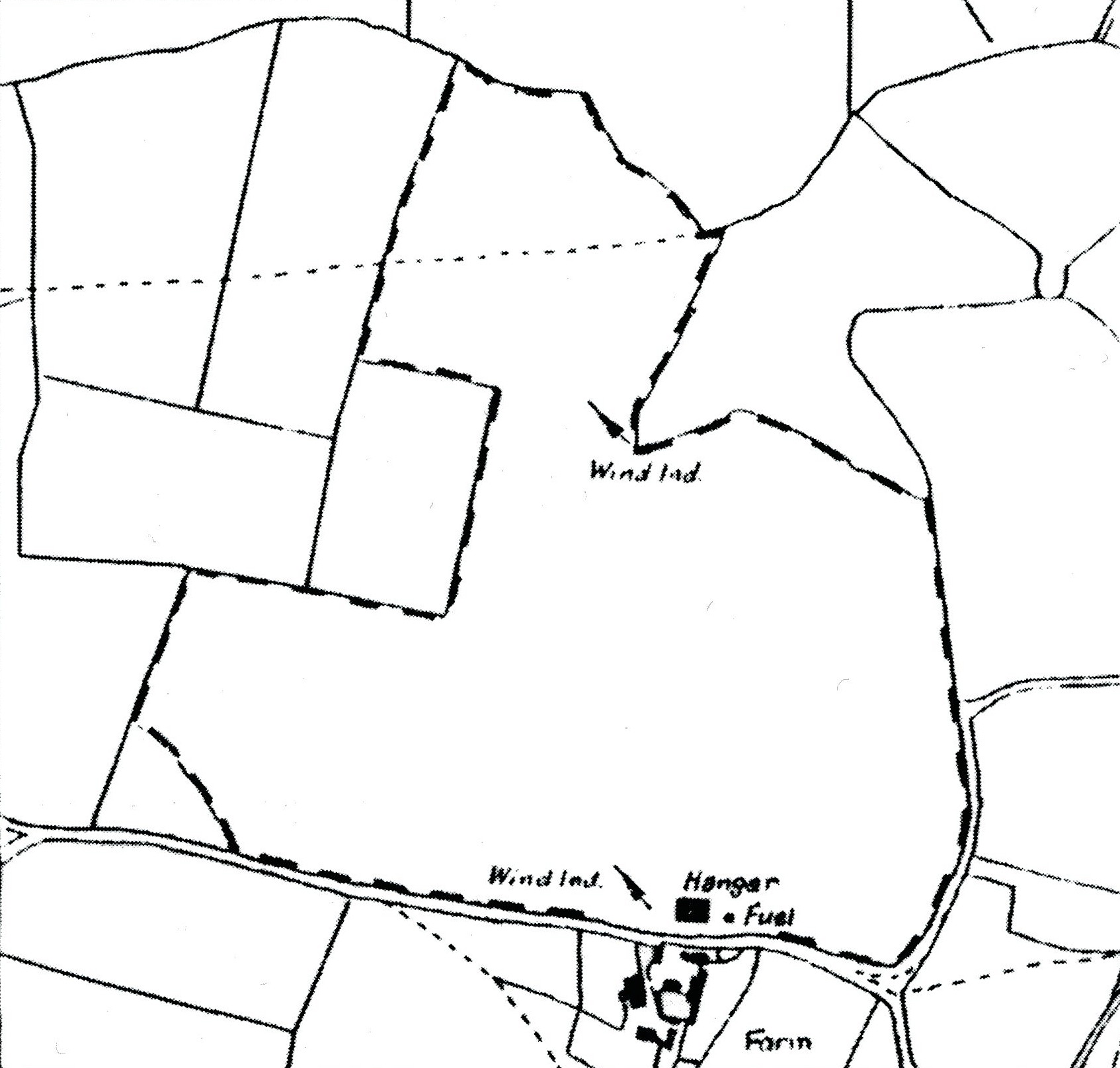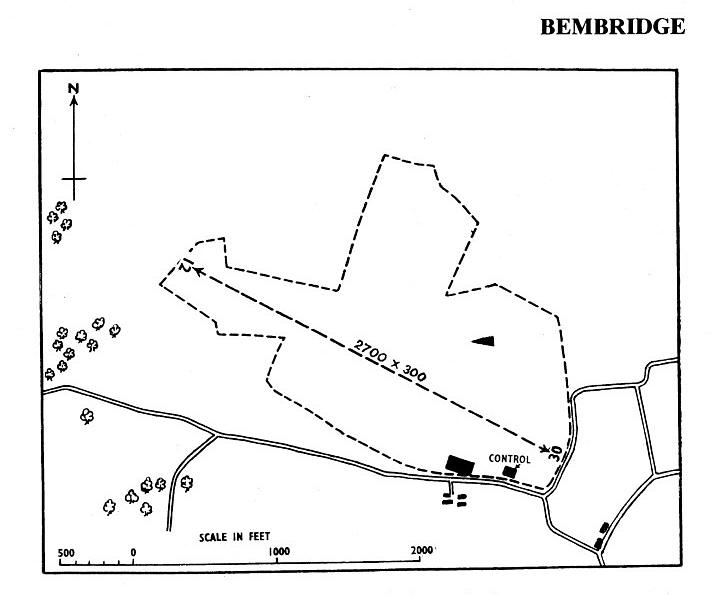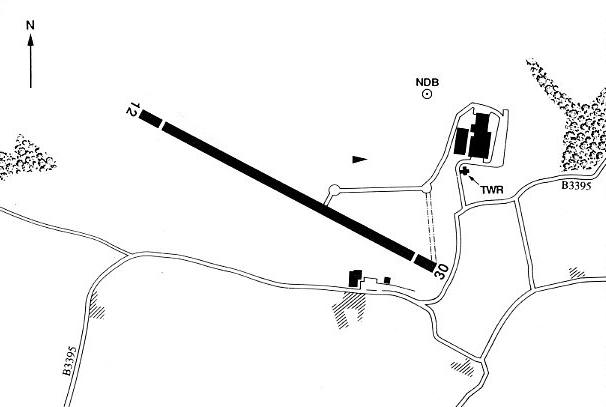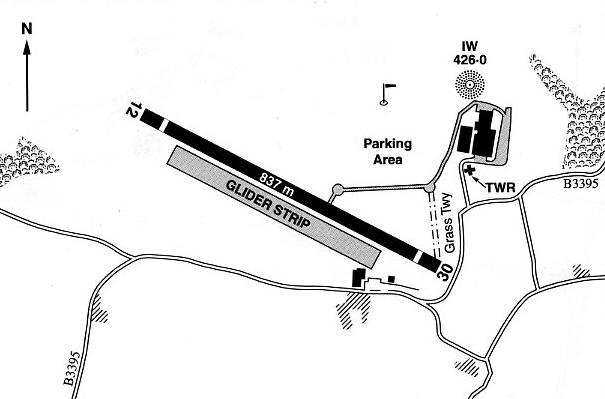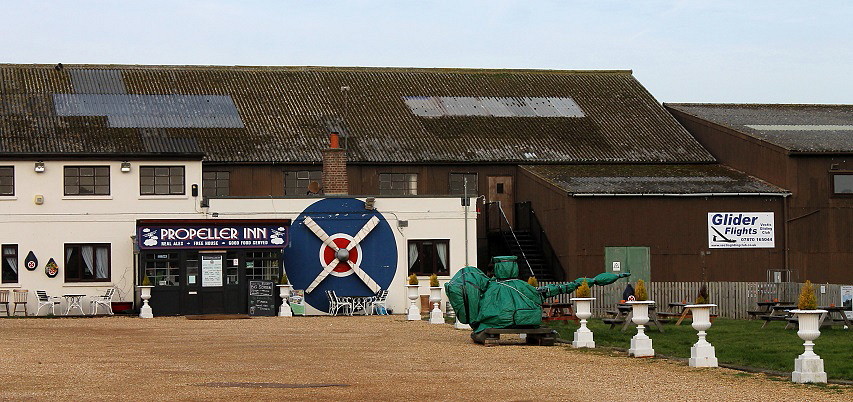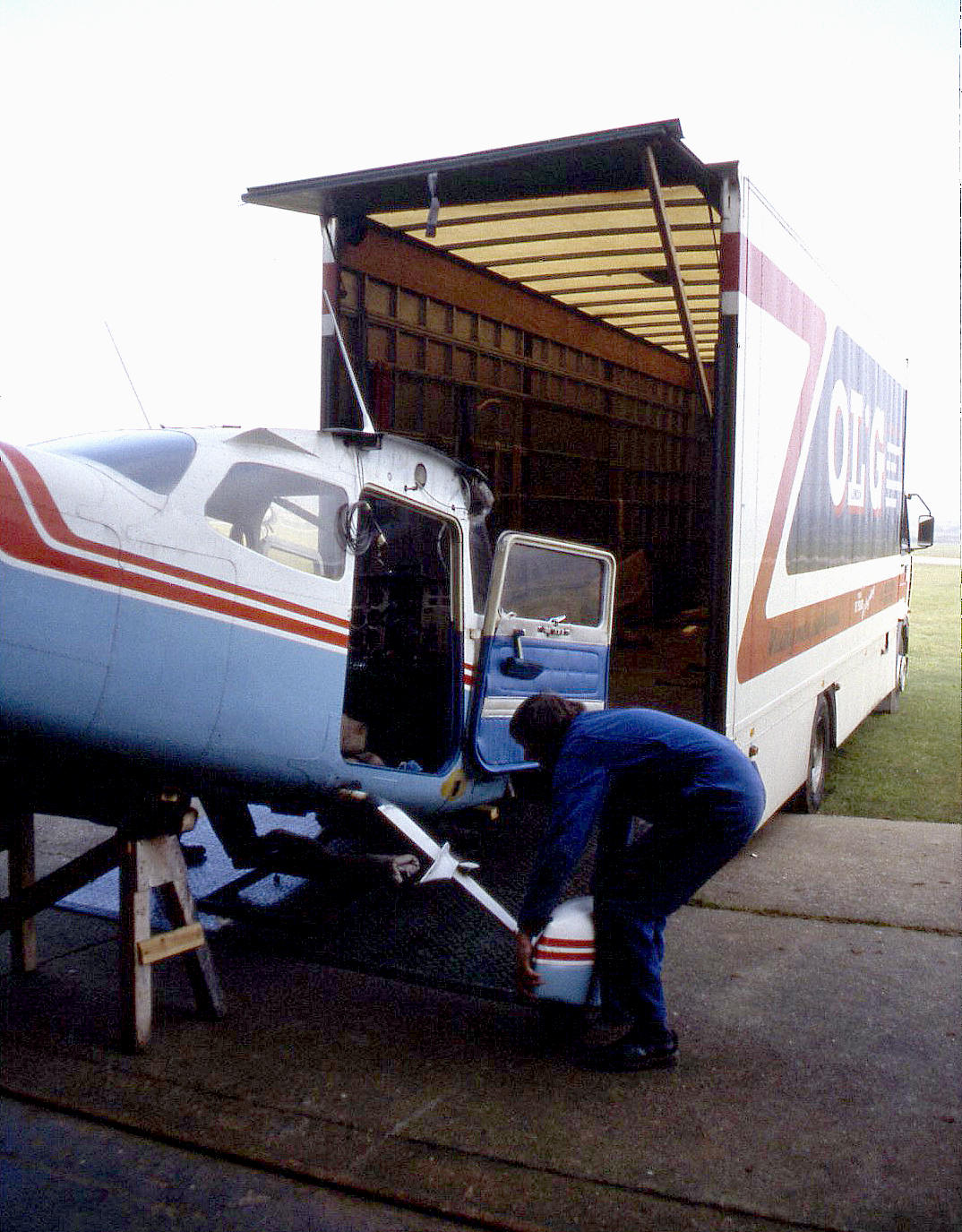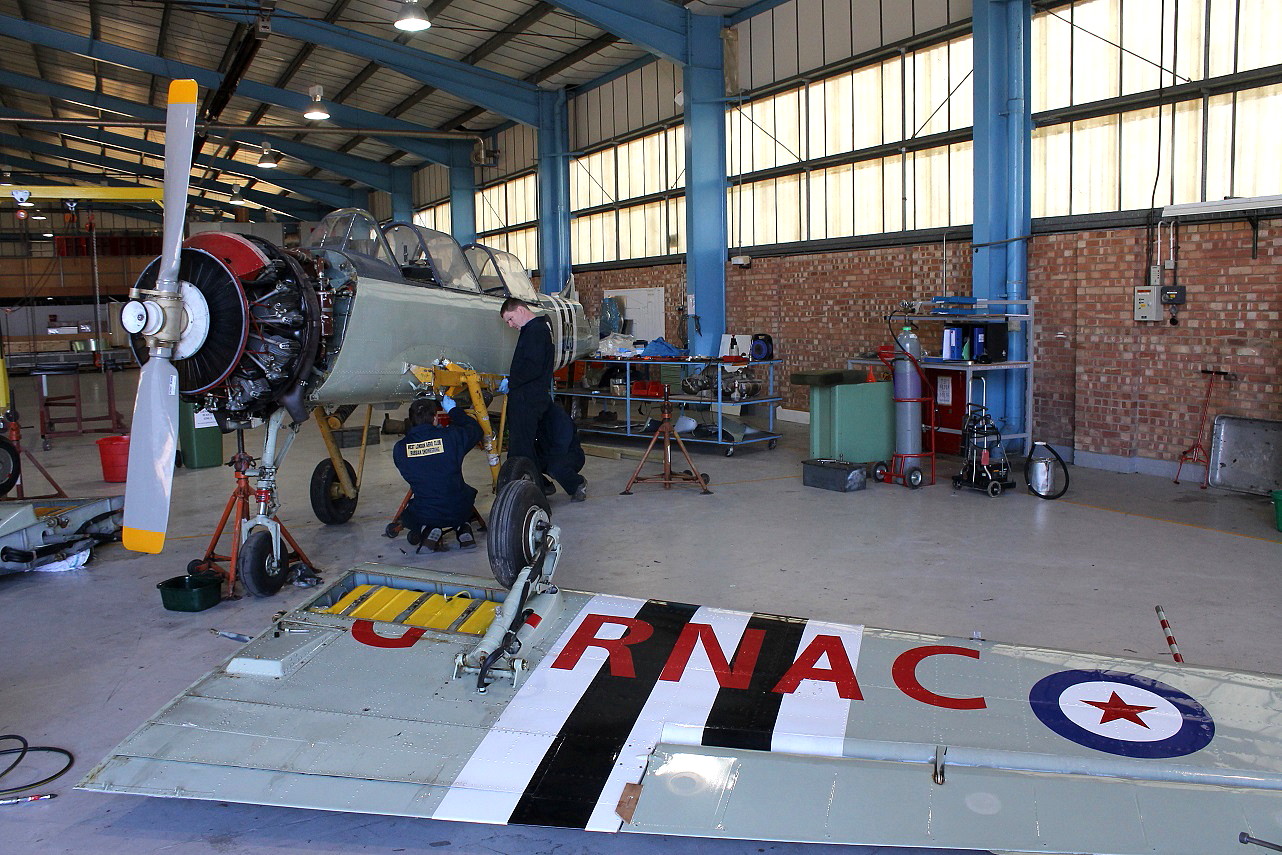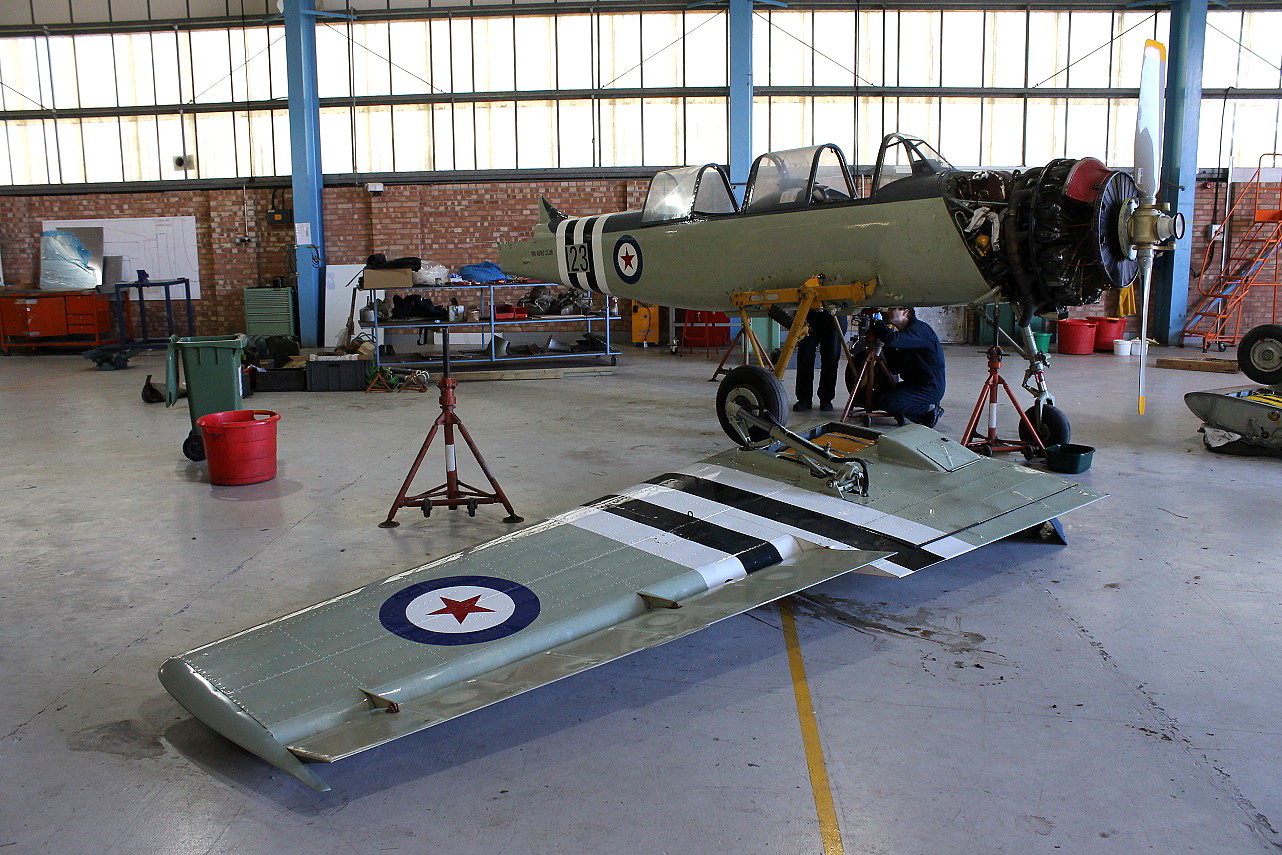Bembridge
BEMBRIDGE: Civil Landing Ground, later aerodrome/airport (see also TAYLOR'S FARM)
Note: Pictures by the author unless specified.
Operated by: 1930s: Mr E N Taylor
1965: Britten-Norman Ltd
1980s/1990s: Pilatus Britten-Norman Ltd
2011: Vectis Gliding Club
Activities: Airline, GA business, private and air racing
British airline users: Pre 1940: Channel Air Ferries, Olley Air Service, Spartan Air Lines
Post 1945: BKS (?)
Flying club: Post 1945: Bembridge Flying Club, Bembridge Flight Training School
In the 1957 'The Aeroplane' directory, East Wight Air Charter were listed as conducting aerial photography, passenger charter, aircraft maintenance and conversion. Operating three Austers.
Manufacturing: 1960s to 1990s: Britten-Norman later Pilatus Britten-Norman
Location: N of the B3395, just SW of Bembridge, about 2 nm NE of Sandown
Period of operation: 1933 (at least) to present day? But, closed for a time in the 1950s?
Note:The maps of BEMBRIDGE from 1965, 1993 and 2000 are reproduced with the kind permission of Pooleys Flight Equipment Ltd. Copyright Robert Pooley 2014.
Runway: 1930s: Max landing run: 459 grass
1965: 12/30 823x91 grass
1980s to 2001: 12/30 837x23 hard.
2000: Glider strip alongside, S of and parallel to, 12/30(grass)
NOTES: Listed in the ‘AA landing Grounds’ publications of the early 1930s and in those days the AA referred to the site as “BEMBRIDGE FARM”. Fuel was available but no hangarage which might appear odd as in those days the Isle of Wight was very much an exclusive destination for a vacation for the wealthy.
Venue (14th August) for Alan Cobham’s 1935 No.1 Tour.
THE 1950s
Reports state that the secretary of the Bembridge Flying Club was involved in highly dubious flights across the Channel resulting in the closure of the airfield at some point in the 1950s. Flights coming back from France were dropping packages here before landing at EASTLEIGH to clear Customs.
In his excellent book Tiger Moth Stuart McKay has a very interesting photograph of two Crop Culture Tiger Moths (converted for crop-spraying) ready for being loaded into a Bristol Freighter. These were G-ANRE and G-ANFK. Unfortunately the photograph does not reveal the registration or operator of the Freighter. Where were they going to? Northern France perhaps? But no – they were being delivered to Sudan! As Mr McKay explains: “When the controlling authorities in the Sudan realised that its annual crop of cotton could be protected by pesticides sprayed from the air and acre for acre , more cheaply than by any other method, fleets of agricultural aeroplanes and helicopters were contracted on a seasonal basis to work from Khartoum.”
How must it have been for the ex-pat pilots (and ex-pat ground-crew presumably?) to work those contracts? Several years ago I met a French pilot who had done this work in Africa, (at Issoire aerodrome in the Auvergne), and had a very enjoyable dinner with him, But, he couldn’t speak English. Using my ‘kerbside’ French I was astonished to discover that, on the kind of operation he was involved with, the pilots also had to maintain the aircraft, including replacing the fabric on the wings etc.
To end, Mr McKay tells us: “The attrition rate amongst agricultural machines was high. G-ANFK crashed in 1957 and was written off, and in September the same year, G-ANRE met a similar fate whilst earning her keep in The Cameroons.” I am not aware of a book existing dedicated to the history of crop-dusting and spraying – a story which really does deserve to be told – without any doubt. Arguably, in civil aviation, by far the most demanding and dangerous of all commercial aviation tasks. Although it has ceased in recent years, I have seen ‘dusting’ and ‘spraying’ operations being carried out and it is every bit as thrilling a spectacle as can be witnessed at any air display. All at ‘zero’ feet with pretty much a stall-turn at each end.
THE PROPELLER INN
The Propeller Inn is well worth a visit, and not for just food and drink as they have what amounts to a small aviation museum with lots of great models and dozens of fabulous pictures and photographs.
BRITTEN-NORMAN
For many years the Britten-Norman Islander and Trislander were built here. The Islander especially is arguably amongst the finest rugged STOL types ever produced for operation into marginal airstrips around the world. Indeed, if the cabin noise problem had been solved, it would have been an even bigger winner in this market. And, why didn't this company get complete support from the British goverment agencies to promote world-wide sales? I can still remember dragging my ever forgiving wife to a Farnborough air show around forty years ago and pointing the Islander display out to her, and saying, "That's where our future lies, producing brilliant aircraft like that." And, at the same show being highly critical of the Concorde fly-past, stating that Concorde was going nowhere and costing the UK taxpayer an absolute fortune. I still think I was correct - discuss?
SOME MEMORIES
I can highly recommend reading Arthur W J G Ord-Hume's memories, of being employed by John Britten and Desmond Norman on the Isle-of-Wight and his BEMBRIDGE accounts, in More Tails Of The Fifties, by Peter G Campbell. (Pages 217 to 229)
AIR RACES
It would seem that in 1981 the ‘Schneider Trophy’ air races, (which ended in 1931 when the British team won the trophy in three consecutive years for perpetuity), was resurrected and has been held at BEMBRIDGE several times since.
PERSONAL MEMORIES
As far as I can remember I have only landed here once, and that was in the Cessna 182 G-LIGG on the 24th November 1991. But, I have visited twice with my truck, the first visit being to transport the Cessna 172 G-WACZ belonging to Wycombe Air Centre back to WYCOMBE AIR PARK. The second visit was in March 2012 when I collected the YAK 52 G-RANC for transport to WHITE WALTHAM. I will always remember these jobs because the ferry fare is, mile for mile, quite probably the most expensive to use throughout Europe.
We'd love to hear from you, so please scroll down to leave a comment!
Leave a comment ...
Copyright (c) UK Airfield Guide















